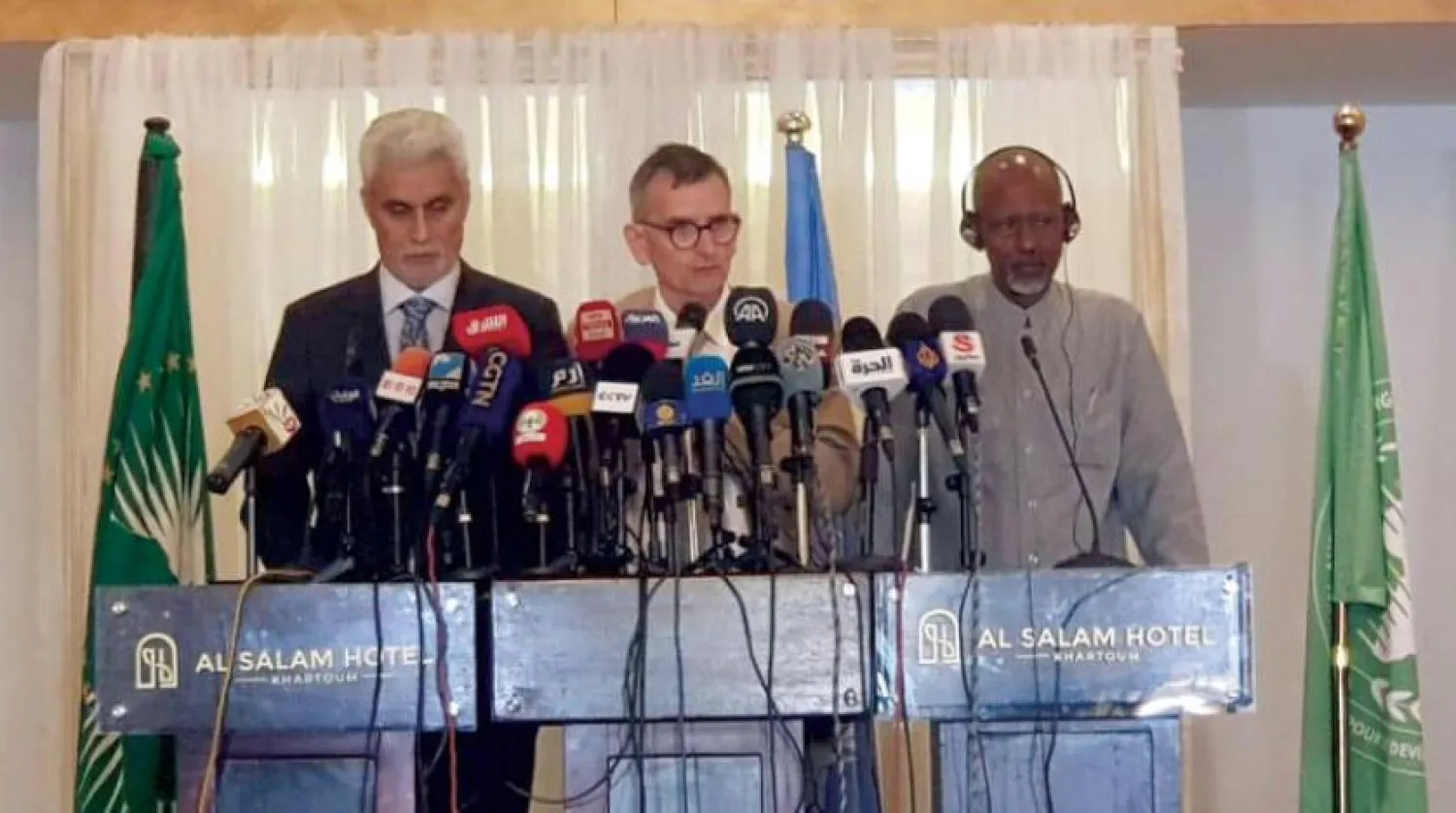The UN-African tripartite mechanism has set May 10 to start the second phase of the comprehensive dialogue between Sudan’s civilian and military parties, but excluding the dissolved National Congress Party.
The tripartite mechanism includes the United Nations, the African Union (AU), and the Inter-Governmental Authority on Development (IGAD).
The dialogue sessions have sought to resolve the crisis lingering since October 25.
The head of the United Nations Mission in Sudan (UNITAMS), Volker Perthes, said in a press conference in Khartoum that the joint process brought key stakeholders including political parties, army leaders, resistance committees, Sufi leaders, and civil society organizations to the talks.
The goal is to explore the stakeholders' views on the appropriate format for talks.
"We realized that some are prepared to sit together at one table, in one room. Whereas others are not refusing dialogue [..] but would rather be engaged outside a common room."
Perthes said that the dissolved National Congress Party would not participate in the talks, but they are discussing the participation of the Popular Congress Party and the Islah movement.
He asserted that the mechanism abides by the laws in the country and will not deal with the banned National Party.
The head of the UN mission explained that there is consensus on several issues, foremost of which is "the constitutional arrangements including addressing the civilian-military relationship or the relationship of different institutions," mechanisms for selecting a prime minister, a government program for what is left of the transitional period towards reaching elections.
For his part, African Union representative Mohamed el-Hacen Lebatt admitted that "the situation in Sudan is extremely sensitive and dangerous." and that the mechanism is trying to reach an agreement in Sudan that will spare the country any dangers.
The IGAD representative Ismail Wais urged the authorities to provide an appropriate atmosphere for the talks, which will start the first week after Eid el-Fitr, on the political process.
Wais called for the release of all political prisoners, activists, and ex-officials of the resistance committees before the Eid, noting that the ball is now in the authorities' court to "continue showing their goodwill and build trust with the street."
He pointed out that the tripartite mechanism is a manifestation of the desire of the regional and international communities to "help Sudan find a credible and acceptable path towards democracy and lasting peace."
Meanwhile, the Sudanese authorities released from prison the ex-officials of the committee leaders that were tasked with dismantling the regime of the ousted president, Omar al-Bashir.
Khalid Omar, a former minister of Cabinet affairs, was released late Tuesday and Mohammed al-Faki Suliman, a former member of the ruling Sovereign Council, walked free from a prison in the capital of Khartoum on Wednesday, their defense team said.
Authorities also released Wagdy Saleh, Taha Osman and Babiker Faisal.
Earlier, the prosecution refused to release the political detainees and set a financial bail of 50 billion pounds for their release, which was rejected by the defense team.
Khartoum Criminal Court Judge Tayeb Asmaa issued a decision to release the leaders for lack of preliminary evidence, saying the detention was illegal.









